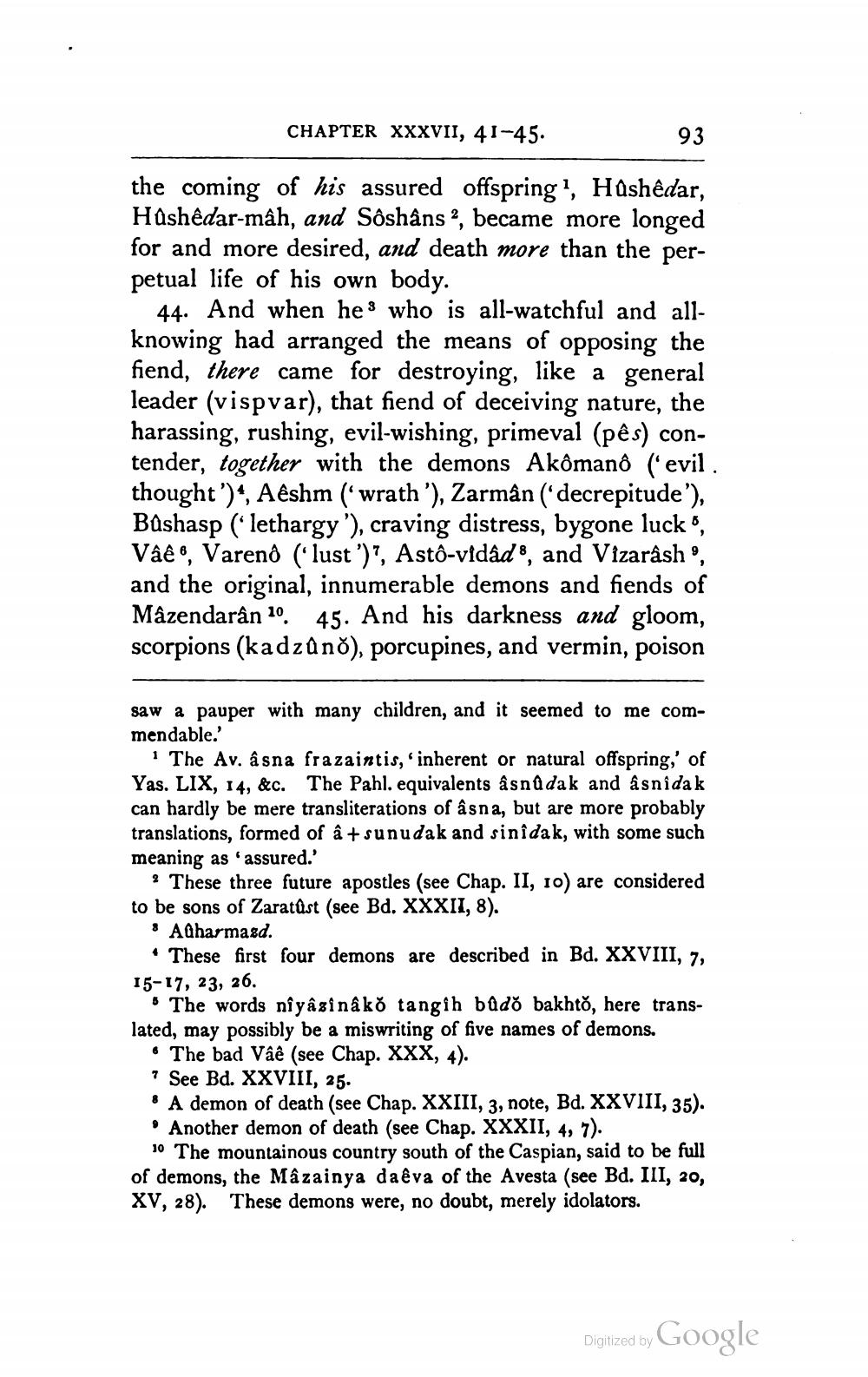________________
CHAPTER XXXVII, 41-45.
93
the coming of his assured offspring', Hashêdar, Hůshedar-mâh, and Sôshậns ?, became more longed for and more desired, and death more than the perpetual life of his own body.
44. And when he 3 who is all-watchful and allknowing had arranged the means of opposing the fiend, there came for destroying, like a general leader (vispvar), that fiend of deceiving nature, the harassing, rushing, evil-wishing, primeval (pês) contender, together with the demons Akômano (evil thought')*, Aêshm ("wrath '), Zarmân ('decrepitude'), Bushasp ("lethargy'), craving distress, bygone luck, Vâê 6, Varend ("lust ')?, Astô-vidade, and Vizarásho, and the original, innumerable demons and fiends of Mâzendarân 10. 45. And his darkness and gloom, scorpions (kadzano), porcupines, and vermin, poison
saw a pauper with many children, and it seemed to me commendable.'
1 The Av. âsna frazaintis, inherent or natural offspring,' of Yas. LIX, 14, &c. The Pahl. equivalents âsnûdak and âsnida k can hardly be mere transliterations of asna, but are more probably translations, formed of â +sunudak and sinîdak, with some such meaning as 'assured.'
three future apostles (see Chap. II, 1o) are considered to be sons of Zaratust (see Bd. XXXII, 8).
Adharmasd. • These first four demons are described in Bd. XXVIII, 7, 15-17, 23, 26.
5 The words nîyâsinâko tangih bûdo bakhto, here translated, may possibly be a miswriting of five names of demons.
• The bad Váê (see Chap. XXX, 4). ? See Bd. XXVIII, 25. * A demon of death (see Chap. XXIII, 3, note, Bd. XXVIII, 35). • Another demon of death (see Chap. XXXII, 4, 7).
10 The mountainous country south of the Caspian, said to be full of demons, the Mâzainya daeva of the Avesta (see Bd. III, 20, XV, 28). These demons were, no doubt, merely idolators.
Digitized by Google




